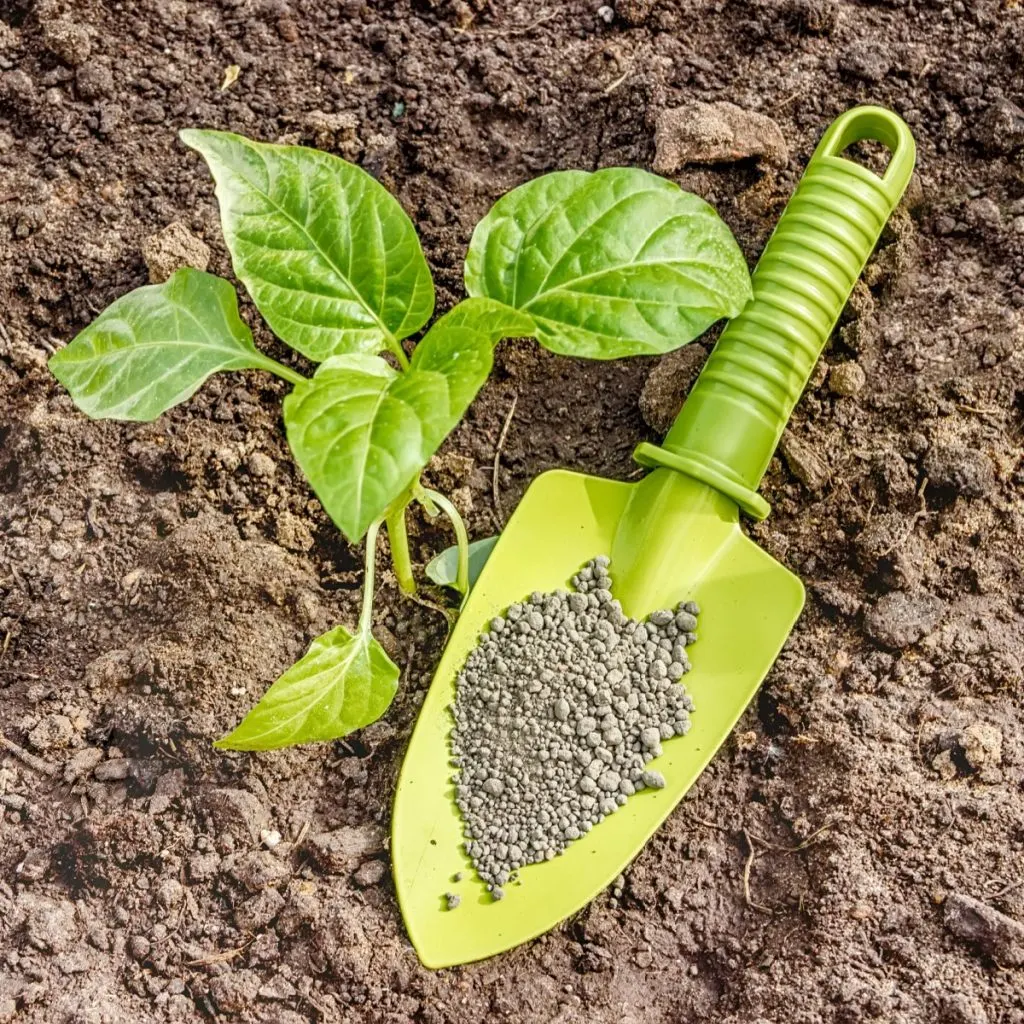Best Fertilizers for Peppers: A Comprehensive Overview to Increase Your Harvest
Best Fertilizers for Peppers: A Comprehensive Overview to Increase Your Harvest
Blog Article
Organic Vs. Synthetic Fertilizers: Which Is Best for Supporting Healthy And Balanced Pepper Plants?
In the realm of nurturing healthy pepper plants, the choice in between artificial and natural fertilizers stands as a critical choice with far-ranging effects. While both alternatives goal to offer necessary nutrients to support plant development, the nuances of their influence on the soil, plant wellness, and the atmosphere spark a discussion that echoes throughout the horticulture neighborhood. Understanding the distinctive advantages and possible mistakes of each plant food type is crucial for pepper farmers seeking to optimize their returns while maintaining a lasting and eco-conscious strategy.
Advantages of Organic Plant Foods
Organic fertilizers offer an environmentally-friendly and sustainable strategy to beneficial pepper plants, providing essential nutrients without making use of synthetic chemicals. These all-natural plant foods are stemmed from natural sources such as garden compost, manure, bone meal, and seaweed, advertising soil wellness and biodiversity. Unlike synthetic plant foods, organic alternatives release nutrients gradually, guaranteeing a balanced and constant supply for pepper plants to flourish.
One substantial benefit of natural fertilizers is their capability to enhance dirt structure and water retention. By enhancing soil wellness, organic fertilizers advertise helpful microbial activity, which helps in nutrient uptake by pepper plants. Furthermore, natural plant foods minimize the danger of chemical run-off, safeguarding water resources from pollution and guarding the atmosphere.
In addition, organic fertilizers add to long-term soil fertility by advertising the development of useful dirt organisms. These organisms aid break down raw material, launching nutrients in a form that is quickly available to pepper plants. best fertilizers for peppers. By promoting a healthy and balanced soil environment, natural plant foods sustain lasting pepper cultivation techniques that profit both plants and the setting
Disadvantages of Synthetic Fertilizers
Synthetic plant foods, in comparison to their organic equivalents, position various disadvantages when used to nurture pepper plants, influencing both plant wellness and ecological sustainability. One significant disadvantage of synthetic fertilizers is their tendency to leach nutrients from the dirt promptly. This quick leaching can bring about nutrient imbalances in the dirt, creating plants to endure from deficiencies or toxicities. In addition, synthetic fertilizers can harm beneficial dirt microorganisms, such as earthworms and advantageous microorganisms, interrupting the soil ecosystem's equilibrium.
Furthermore, the overuse of synthetic plant foods can add to water air pollution. Excess plant foods not taken in by plants can wash away into water bodies, bring about eutrophication, where algae blossoms deplete oxygen degrees in the water, damaging marine life. Artificial plant foods are commonly obtained from non-renewable sources, such as fossil fuels, adding to carbon emissions and ecological deterioration throughout their manufacturing.
Nutrient Absorption Comparison
Efficient nutrient absorption plays an essential function in the total health and development of pepper plants. When contrasting natural and artificial plant foods in regards to nutrient absorption, natural plant foods have the advantage of offering a more well balanced and slow-release resource of nutrients (best fertilizers for peppers). Organic plant foods contain a variety of macro and micronutrients that are not just advantageous for the plants however additionally promote healthy dirt microbial task, which aids in nutrient uptake. On the other hand, artificial plant foods often offer a fast launch of nutrients, which can lead to leaching and overflow, leading to reduced nutrient absorption prices by the plants.
Additionally, organic fertilizers boost dirt structure and water retention capacity, allowing pepper plants to accessibility nutrients extra efficiently. This improved dirt top quality facilitates origin advancement, making it possible for far better nutrient absorption. Synthetic fertilizers, although initially boosting plant growth because of their high nutrient concentrations, may hinder long-term nutrient absorption by degrading dirt wellness with time.
Ecological Effect Considerations

On the various other hand, synthetic fertilizers, although frequently even more instantly readily available and focused to plants, can have harmful results navigate to this site on the setting otherwise applied properly (best fertilizers for peppers). Their manufacturing requires high energy inputs, leading to greenhouse gas discharges and adding to climate change. The overflow of excess artificial fertilizers can infect water resources, leading to eutrophication and hurting marine environments.
Ideal Plant Food Practices for Peppers
To accomplish this, it is crucial to follow best fertilizer techniques tailored to the specific demands of pepper plants. One essential practice is to carry out a soil test before using any fertilizers.
Another important technique is to feed pepper plants at the correct time. Typically, peppers benefit from obtaining plant food at growing and afterwards once again when they start to flower. Over-fertilizing can bring about nutrient imbalances and harm the plants, so it is vital to adhere to advised application prices.
In addition, selecting a balanced plant food with an NPK ratio that matches pepper plants' demands is fundamental. Organic fertilizers, such as garden compost or manure, can be outstanding selections as they release nutrients gradually and improve dirt structure gradually. However, artificial plant foods can offer read this a quick nutrient increase when needed. Inevitably, combining artificial and organic plant foods carefully can aid support healthy pepper plants while decreasing environmental influence.
Conclusion

Organic plant foods offer an environmentally-friendly and lasting approach to nourishing pepper plants, giving important nutrients without the usage of artificial chemicals. Unlike artificial fertilizers, organic alternatives launch nutrients slowly, making sure a steady and balanced supply for pepper plants to flourish.
Synthetic plant foods, in comparison to their natural counterparts, pose different downsides when made use of to nourish pepper plants, affecting both plant wellness and ecological sustainability. When contrasting organic and artificial plant foods in terms of nutrient absorption, natural fertilizers have the advantage of providing a more balanced and slow-release resource navigate to these guys of nutrients.Moreover, organic plant foods boost soil framework and water retention ability, enabling pepper plants to access nutrients a lot more efficiently.
Report this page